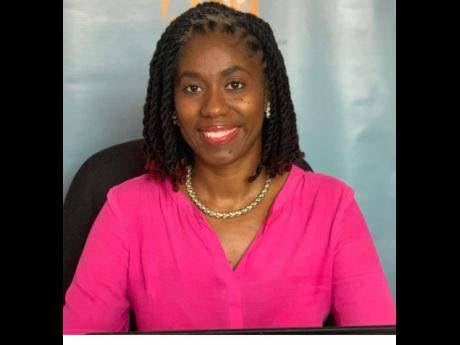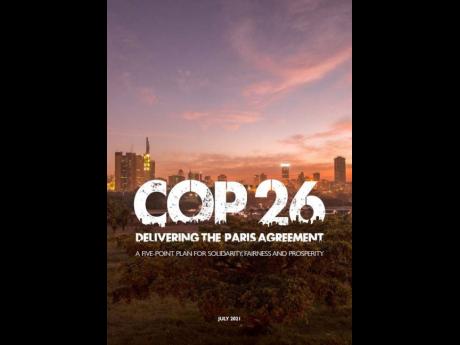Earth Today | Regional NGO wants urgent attention, strong commitments to avert climate crisis
WITH THE next global climate summit inching ever closer, a regional non-governmental organisation (NGO) is making its voice heard on the need for ‘urgent attention and strengthened commitments’ from countries to set ambitious greenhouse gas emission targets to avert a climate crisis.
The summit, known formally as the Conference of the Parties (COP) to the United Nations Framework Convention on Climate Change, is to have its 26th sitting in Glasgow in November.
“The findings from the Intergovernmental Panel on Climate Change’s sixth assessment report are clear and highlight the need for urgency. Greenhouse gas emissions from human activity are driving widespread and unprecedented changes in our climate. An increase of over one degree Celsius in global temperature above 1850-1900 levels has already been observed between 2010-2019,” said the Caribbean Natural Resources Institute (CANARI).
“Further, under the five emission scenarios ranging from business-as-usual to a future with ambitious emission cuts, a dangerous increase of two degrees Celsius or more above 1850-1900 levels is projected by 2100,” added the entity, which has worked to promote and facilitate stakeholder participation in the stewardship of natural resources in the Caribbean for more than 30 years.
As such, CANARI said it joins with the Alliance of Small Island States (AOSIS) and Caribbean governments in calling for ambitious emissions targets for 2030 and the achievement of net zero by 2050 to limit global temperature to 1.5 degrees Celsius.
Indi Mclymont Lafayette, a long-time advocate with civil society in the climate change arena and head of Change Communications, has welcomed CANARI’s statements. She said it is necessary that NGOs have a say in the upcoming talks and to collaborate to influence the outcomes.
“It’s critical that NGOs have a voice at the climate talks. They reflect the experiences of people on the ground and, sadly, the NGO voices have been very quiet in the past two years. Government funders should ensure that NGOs’ capacities are built to engage at the international talks and that they are funded to participate,” she said.
“In Jamaica in particular, it is critical that their voices detailing climate consequences be shared as well as adding support to the government position calling for the climate target of 1.5 to stay alive/1.5 to thrive. It has to be all hands on deck for the upcoming COP,” she added.
Climate change is a clear and present danger to Jamaica and other Caribbean islands, as other SIDs and countries of the developing world. Given the scale of that vulnerability, having regard to climate impacts such as sea level rise and extreme weather events, including hurricanes, a five-point plan has been advanced from developing country stakeholders to realise ‘solidarity, fairness and prosperity’.
That plan – titled ‘COP26: Delivering the Paris Agreement’ and which has won the endorsement of AOSIS, of which Jamaica is a member, addresses emission cuts, adaptation, loss and damage, finance, and implementation.
“In each of these five areas, specific measures are needed … But the principles on which they are based are clear and simple. Governments have pledged to strive to keep global warming below 1.5 degrees Celsius, and now need to act with the speed that science dictates,” the plan explained.
“We need to adapt to impacts wherever possible – and when it is not possible, the societies damaged by those impacts need, deserve and have been promised support. None of these are possible without finance. Finally, wrangling over the final elements of the Paris Agreement’s rule book is overdue a conclusion,” it added.
“COP26 presents a unique opportunity to enact an effective response to climate change. Unprecedented demand for action from the world’s citizens, the growing threat from climate change impacts, the changing economics of clean energy, recent political developments in key countries and the need to rebuild from the COVID-19 pandemic combine to make this a time of both maximum need and maximum opportunity,” the plan said further.


